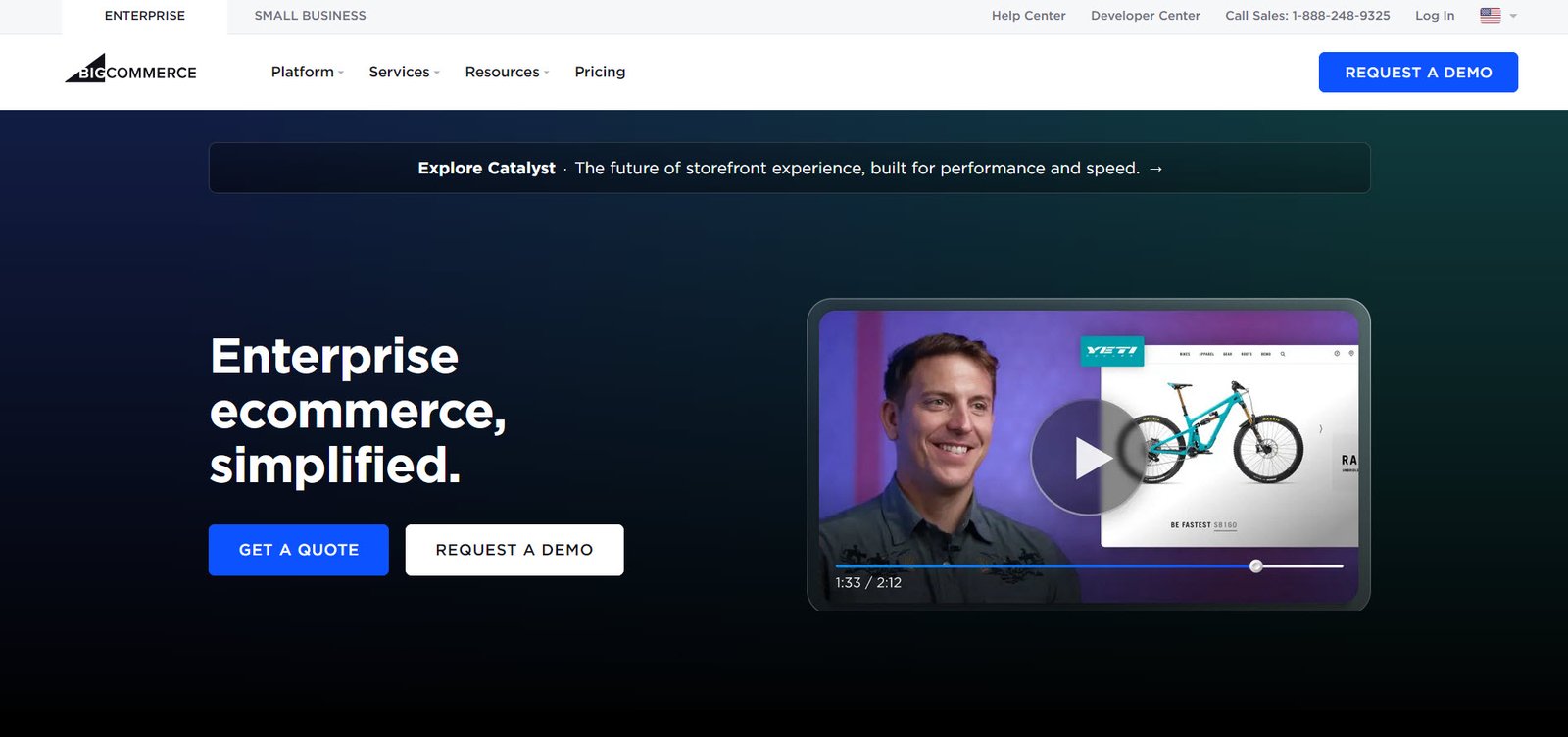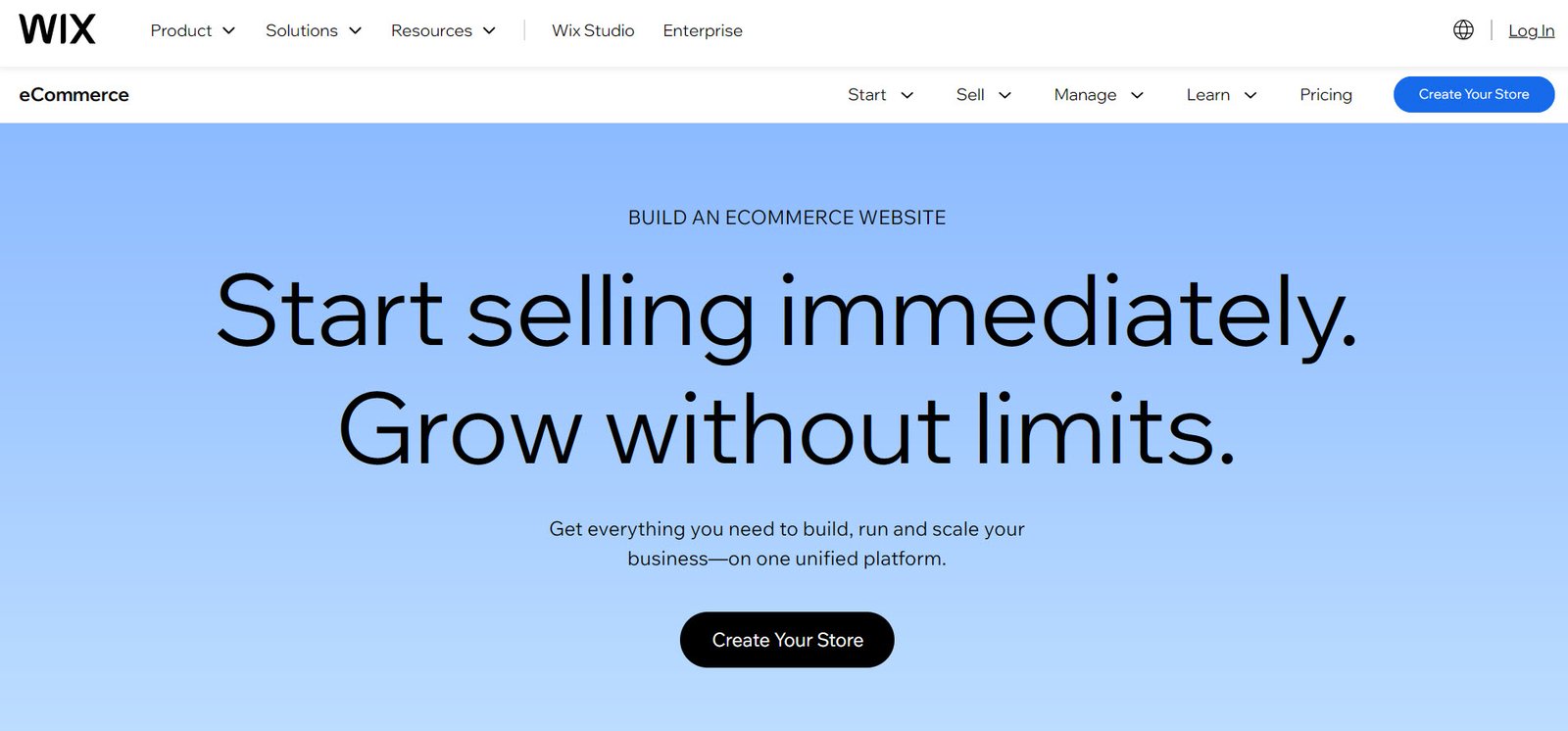In today’s digital age, establishing an online store has become a vital step for businesses looking to expand their reach and tap into a global market. However, selecting the right e-commerce platform is crucial to building a successful online store. With a plethora of options available, it can be challenging to determine which platform best suits your needs.
Here, we explore the top seven e-commerce platforms that have proven to be reliable, user-friendly, and feature-rich.
- Shopify
- WooCommerce
- BigCommerce
- Magento (Adobe Commerce)
- Wix eCommerce
- Squarespace
- OpenCart
1. Shopify
Shopify is a widely popular e-commerce platform that caters to businesses of all sizes. It provides a comprehensive solution, including tools for website building, payment processing, and inventory management. Its user-friendly interface features drag-and-drop functionality and offers over 100 customizable templates.
Shopify also includes an integrated payment gateway, multi-currency support, and access to an extensive app store for additional functionalities. While it is an ideal choice for entrepreneurs and small to medium-sized businesses seeking an all-in-one solution, its subscription fees can accumulate over time, and advanced customization may require coding knowledge.

2. WooCommerce
WooCommerce, a powerful plugin for WordPress, is another excellent option. This platform is highly customizable and well-suited for businesses already using or planning to use WordPress. It seamlessly integrates with WordPress and supports a wide range of plugins and extensions.
WooCommerce also offers multiple payment gateways and extensive customization options as an open-source platform. While it is free to use, with optional paid extensions, it requires technical expertise for advanced features, and users must handle hosting and security setup independently.

3. BigCommerce
BigCommerce is a robust e-commerce platform designed for scalability. It’s a great choice for businesses that anticipate rapid growth.
BigCommerce is designed for scalability, making it an excellent choice for businesses anticipating rapid growth. This platform supports unlimited products, storage, and bandwidth, along with built-in SEO tools and the ability to sell across multiple channels such as Amazon, eBay, and Facebook. It also provides advanced reporting and analytics without charging transaction fees.
However, its higher pricing plans and potential need for developer assistance for customization may be drawbacks for some businesses.

4. Magento (Adobe Commerce)
Magento is a highly versatile platform ideal for larger businesses with specific needs. Its open-source nature provides unparalleled flexibility but requires technical expertise.
Magento, now known as Adobe Commerce, offers unmatched flexibility and is suitable for larger businesses with specific requirements. This open-source platform allows advanced customization and is scalable for high-volume operations. It supports multiple languages and currencies and provides comprehensive analytics and reporting.
However, Magento has a steep learning curve, and hosting and development costs can be high, making it better suited for enterprises with dedicated development teams.

5. Wix eCommerce
Wix, known for its drag-and-drop website builder, also offers e-commerce solutions tailored to small businesses and entrepreneurs. It features an intuitive editor, over 500 templates, built-in SEO tools, and secure payment options. Wix is user-friendly and affordable, making it accessible to those without technical skills.
However, its scalability is limited, and it may lack the robust features found in dedicated e-commerce platforms.

6. Squarespace
Squarespace stands out for its sleek and modern designs, making it an ideal choice for creative professionals and boutique stores. It offers professionally designed templates, integrated blogging and marketing tools, mobile-optimized checkout, and inventory management.
Squarespace is simple to use and visually appealing but has fewer integrations compared to competitors and is less suitable for large-scale operations.

7. OpenCart
OpenCart is a lightweight, open-source e-commerce platform offering a cost-effective solution for businesses with technical expertise. It supports multiple payment gateways, languages, and currencies, and features a user-friendly admin dashboard.
While it is free to use and highly customizable, OpenCart requires technical knowledge and has limited built-in marketing tools.

Conclusion
Choosing the right e-commerce platform depends on your business’s specific needs, budget, and technical expertise. For startups and small businesses, platforms like Shopify or Wix offer simplicity and affordability.
Larger enterprises or businesses with complex requirements may find Magento or BigCommerce more suitable. By understanding the features, pros, and cons of each platform, you can make an informed decision and set your online store up for success.




Pingback: 8 Best NoSQL Databases to Handle Big Data - TopatTop.com